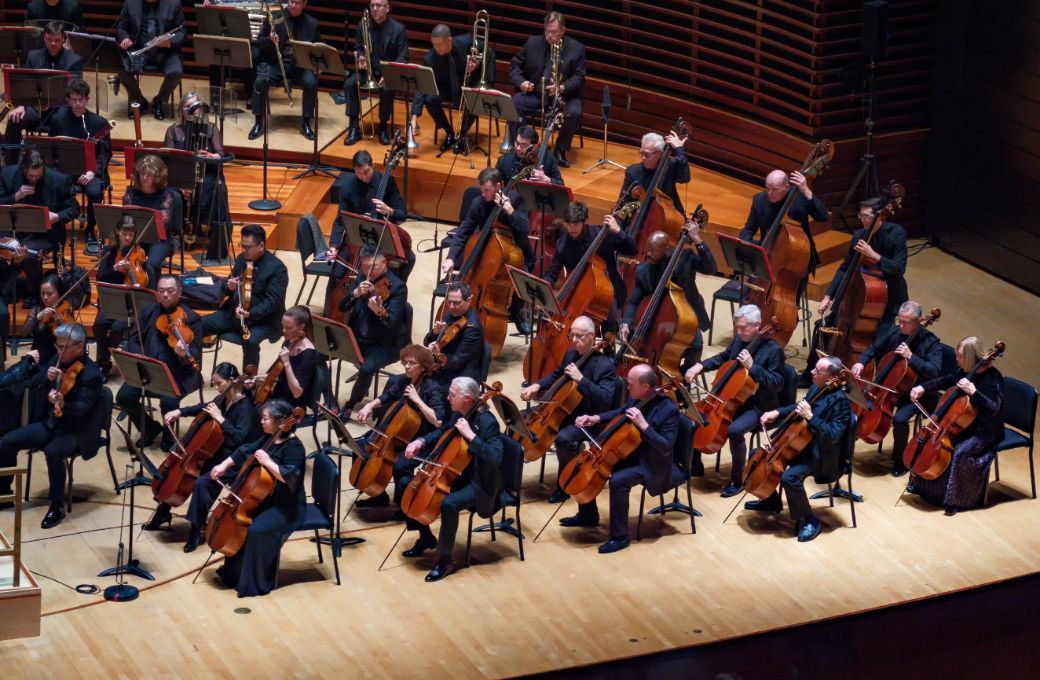The dead of winter requires comfort food, which the Philadelphia Orchestra delivered last weekend with a rousing performance of The Planets. This ensemble knows Gustav Holst’s perennial audience favorite backward and forward, but their interpretation felt energized by the presence of guest conductor Daniele Rustioni, making his second appearance on the podium here. An experienced hand at opera – he was recently named Principal Guest Conductor of the Met – Rustioni brought a narrative thrust to the proceedings that kept me on the edge of my seat, despite the music’s familiarity.

Across the hour-long work, Rustioni offered the audience a study in contrasts. Mars, the Bringer of War thundered in at full cry, with spacious rubato creating a sense of melancholy beneath the bluster. This contrasted nicely with Venus, the Bringer of Peace, which showed off the orchestra’s wind complement – oboist Peter Smith, flutist Patrick Williams and clarinetist Ricardo Morales all offered zesty solo lines. Mercury, the Winged Messenger and Jupiter, the Bringer of Jollity became mirror images of each other: the bright zippiness of the strings and winds collapsed into stentorian brass chorales. Saturn, the Bringer of Old Age had a dignified quality, while Uranus, the Magician was appropriately impish.
The women of the Philadelphia Symphonic Choir joined the proceedings for Neptune, the Mystic, injecting an otherworldly quality from their offstage perch. Throughout, Rustioni proved a spirited leader, bouncing on the podium and keeping the beat with broad gestures that suggested his expansive view of this music. If you conceive of the conductor as a sort of coach, he’s exactly the sort of enthusiastic representative you’d want to see on the sidelines. The end of each movement earned sustained applause, and while some conductors seem performatively perturbed by this break in protocol, Rustioni clearly relished the ardor.
Paul Jacobs, a regular on the Fred J Cooper Memorial Organ’s bench, joined the orchestra for Alfredo Casella’s Concerto romano. Written just a decade after The Planets, it had not been heard in the US for nearly a century prior to these performances. Jacobs brought his usual charm to the work’s three movements, although the solo writing for organ demanded less virtuosity than this artist is normally called upon to deliver. At times, the music for the orchestra – intriguingly scored for trumpet, trombone, timpani and strings only – felt at odds with the organ’s part, a bombastic accompaniment drowning out a rather solemn solo voice. Rustioni, Jacobs and the musicians played it vigorously, but it did not strike me as a piece ripe for rediscovery. Jacobs showed off the full range he can offer in his encore, the Sinfonia from Bach’s Wir danken dir, Gott, wir danken dir.
Rustioni kept the textures feather-light in his opening selection, Ravel’s Alborada del gracioso, without sacrificing the work’s phenomenal rhythmic drive. Principal Bassoon Daniel Matsukawa played the solo lines for his instrument with special distinction and gleaming tone. As Rustioni prepares to take up his operatic appointment 90 miles away next season, one can only hope he’ll also become a fixture in Marian Anderson Hall. His future boss Yannick Nézet-Séguin seems to make it work, so why not him?


